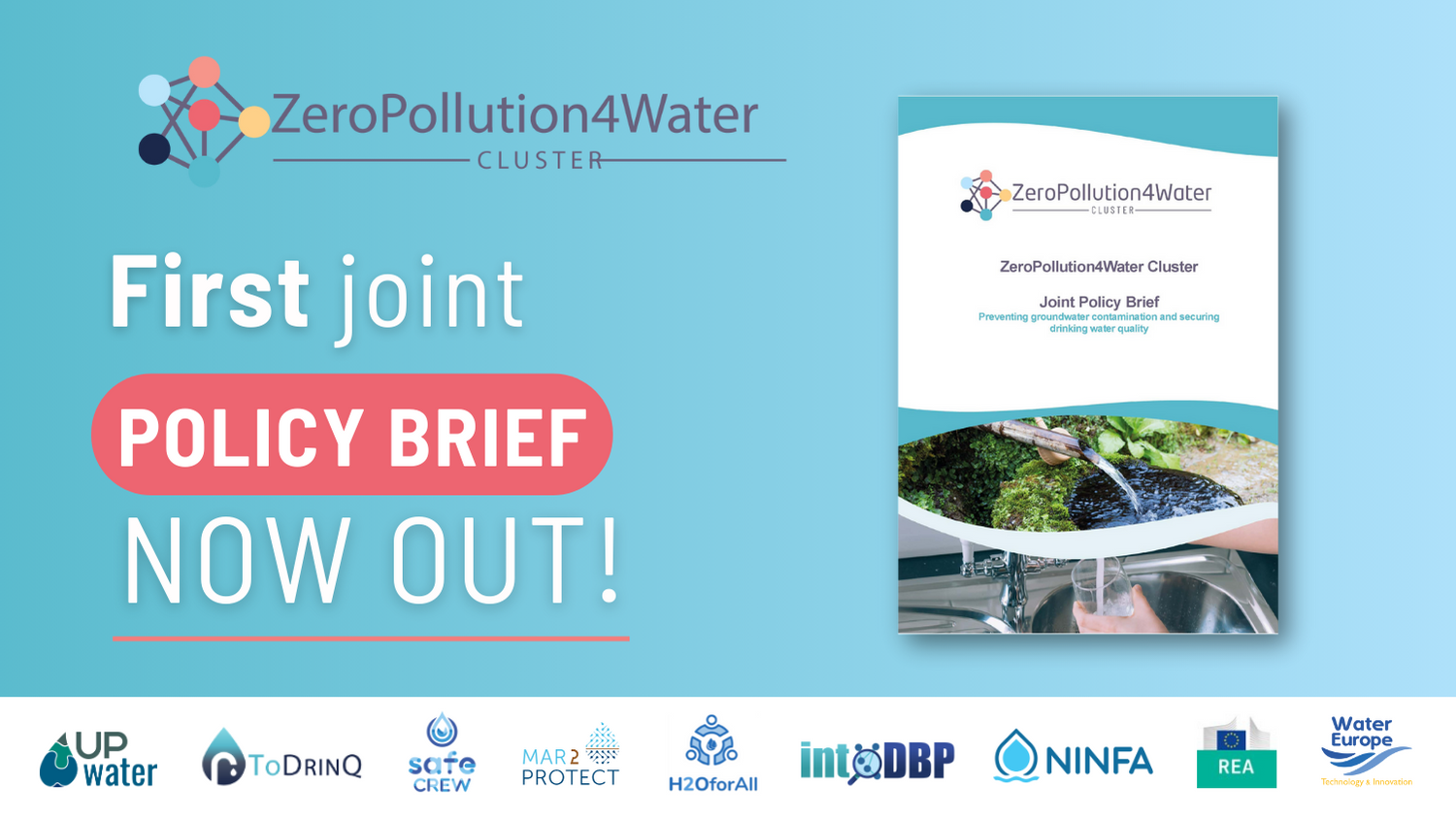The quest for sustainable water management and zero pollution has reached an important moment with the release of the first Policy Brief from the ZeroPollution4Water (ZP4W) Cluster and Water Europe. This document marks a significant milestone in the collaborative efforts of seven Horizon Europe projects dedicated to safeguarding our surface and groundwater resources, ensuring the provision of safe drinking water, and supporting other critical uses.
The Convergence of Vision and Action
In October 2023, at the inaugural cluster meeting in Brussels – Water Projects Europe, a vision was set into motion. The policy brief that has emerged from this gathering is not just a document; it’s a manifesto for change, outlining the tangible benefits each project brings to the Zero Pollution Strategy. The brief is divided into two insightful parts: the first showcases the individual contributions and objectives of the seven projects, while the second presents key findings and recommendations from the intoDBP and H2OforAll projects.
Introduction to the ZP4W Policy Brief
The ZP4W Cluster Policy Brief focuses on preventing groundwater contamination and ensuring the quality of drinking water through collaboration among seven EU-funded projects (NINFA, SafeCREW, Mar2Protect, H2OforALL, ToDrinQ, UPwater, and intoDBP). These projects collectively aim to address issues such as the diffusion of pollutants, particularly in the face of climate change, which exacerbates water scarcity and quality concerns.
Central to the initiative is the EU’s Zero Pollution Action Plan (ZPAP), part of the European Green Deal, which targets reducing pollution across air, water, and soil to non-harmful levels, with ambitious goals for a toxic-free environment by 2050. This includes specific focuses on reducing microplastics and plastic litter in marine environments, reflecting a broader concern for pollutants including disinfection by-products (DBPs) in drinking water, an area of emphasis within the policy brief.
The policy brief outlines the contributions of each project towards the cluster’s objectives, emphasizing innovations in groundwater and drinking water management, such as advanced monitoring strategies, risk assessment and management systems, and the development of new technologies for pollution prevention and water treatment.
The brief also highlights the need for integrated, policy-driven approaches to manage emerging contaminants and the importance of investments in research and innovation (R&I) to develop effective, cost-efficient solutions for water quality protection. Recommendations include developing flexible regulatory frameworks for DBPs, improving accessibility and coverage of safety data sheets, and investing in real-time data acquisition technologies for the detection and removal of micropollutants and pathogens.
Furthermore, the policy brief addresses the importance of supporting biobased and nature-based solutions, enhancing the resilience of drinking water infrastructure, and advocating for improved wastewater reuse and aquifer recharge practices. The document underscores the role of the cluster in supporting the implementation of the EU’s water-related legislation, fostering a comprehensive approach to water management that aligns with the Zero Pollution Strategy and the broader goals of the European Green Deal.



